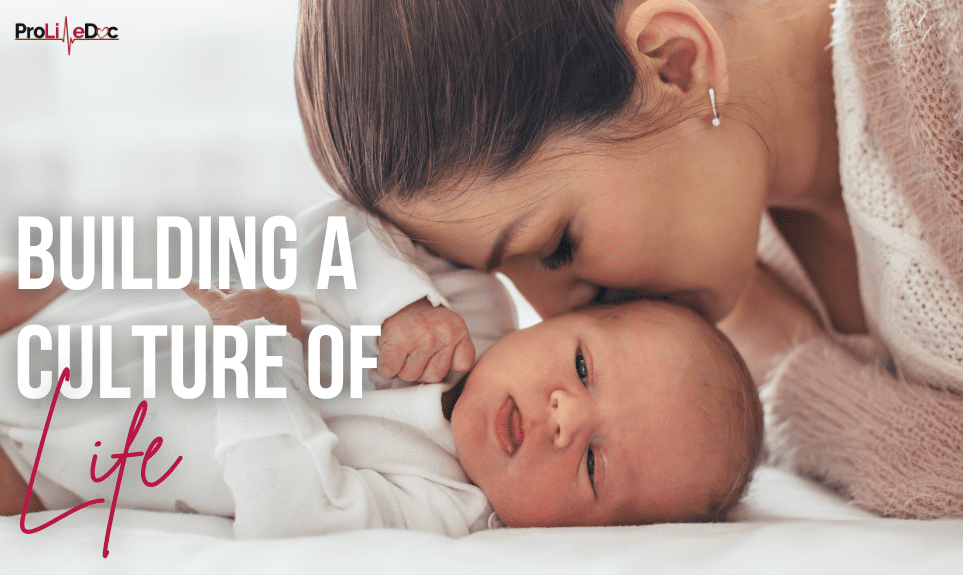Have you ever heard or read a comment like this?: “Pro-lifers don’t really care about children; they just want to control women. They couldn’t care less what happens to a baby after it’s born.”
Pro-life supporters are often accused by abortion activists of protecting human lives when they are in the womb only to coldly abandon them and neglect their needs after birth. Take a deeper look and you’ll find that nothing could be further from the truth. In fact, pro-life Christians in the U.S. adopt and foster children at over twice the rate of Americans on average. Christians – predominantly pro-life – also lead the pack in charitable giving, donating up to 20% more to charity than non-Christians.
These gifts help fund education, human services, and healthcare for children and families in need. In addition, thousands of pro-life pregnancy resource centers across the country continue to offer material support and parenting education to new mothers and fathers long after they have chosen life for their babies. When it comes to their beliefs, champions for life put their money where their mouths are.
You see, being pro-life is not just a matter of opposing abortion; it is about honoring every life and acknowledging the precious spark of humanity in each individual.
The Culture of Life Promotes Life at Every Stage
Dr. Lile and his pro-life allies are committed to standing in the gap to protect the preborn because they know the importance of building a culture that treasures human life at every stage and in every condition. Followers of Christ understand that the preborn have intrinsic value as fellow image-bearers of God, but even in a secular culture, upholding the worth of each human being is an essential ingredient in the recipe for a truly compassionate and just society. The sanctity of life, from conception to natural death, forms the foundation of any healthy culture. We disrespect it at our own peril.
Dire warnings about devaluing life echo through history, the fallout demonstrated again and again by governments and movements that view human life as cheap. Once we as a people allow ourselves to decide that some lives have less worth than others, the door is open for abuse. By claiming the right to judge whose life is worthy of protection and whose isn’t – who deserves human rights and who doesn’t – a society gives up objective truth for the subjective whims of whoever is in power. The destruction that follows progresses along predictable lines, and is limited only by the willingness of our leaders to wield the gavel.
After all, if a preborn child’s value depends on whether or not he is wanted, then who is to say that an unwanted toddler has innate value? If a fetus is not considered a person because she is dependent upon another person to live, what about a 3-month-old infant who also relies wholly on her caregivers for nourishment, safety, and survival? If it is “kinder” to end a baby’s life in the womb when tests have determined that he has disabilities, what message does that send to fully grown adults with disabilities about whether their lives are worth living?
A culture that embraces death as a solution to discomfort and difficulty will eventually apply it to all manner of problems.
We can already see this happening in Canada, for example, where abortion has had no criminal restrictions since 1989 and is publicly funded by the health care system. In 2016, Canada progressed beyond abortion and introduced the Medical Assistance in Dying program (MAID), which offers euthanasia to patients with incurable – but not necessarily terminal – medical diagnoses. While originally meant for sufferers of physical illnesses, MAID’s assisted suicide option is scheduled to be expanded within the next three years to patients suffering solely from mental illness.
Considering that Canada has socialized medical care, and that ongoing medical treatment for persistent physical and mental conditions is expensive, it’s hard not to question whether financial considerations were weighed in the balance against human lives in the design of this program. Some Canadian citizens have even reported being denied the care that they requested and urged to choose MAID, over their own objections, by healthcare providers they trusted to guide their treatment and preserve their lives.
If it’s fair to judge a society by how it treats its most vulnerable members, many “advanced” countries are failing the test.
Now imagine a community built on the notion that every single human life has intrinsic value. Not only would abortion and euthanasia be unthinkable, we would turn our collective resources toward enriching each precious life and providing the knowledge and support required to sustain it. Rather than paying for abortions with public and private funds, we would invest in increasing access to prenatal care and preparing expectant mothers and fathers for parenting or adoption. Instead of writing off the lives of those who are suffering from currently incurable diseases as “not worth living”, we would focus medical research on improving their symptoms, encouraging them to find meaning and comfort in faith, family, and community.
By refusing to treat people as disposable, we raise the tenor of our relationships, the quality of our governance, and the outlook of our future, creating a cultural climate steeped not in despair, but in hope.
A society that cherishes life upholds the essential dignity of every member, no matter how small. This commitment to recognizing the worth of each person—no matter their age, ability, or circumstances—fosters a culture that respects human rights, promotes social justice, and ultimately benefits us all.
To learn more about Dr. Lile, to subscribe to our newsletter, or to donate, contact ProLife Doc today. It takes all of us together to build a culture of life.


